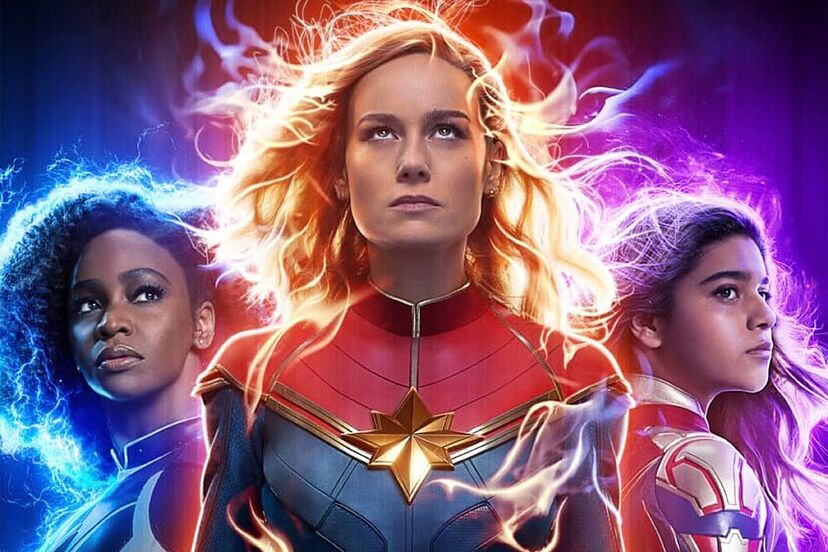In a surprising turn of events, “The Marvels,” the latest addition to the Marvel Cinematic Universe (MCU), failed to soar to the heights expected during its opening weekend, marking the lowest domestic debut in the franchise’s storied history. Despite initial projections placing the film’s opening between $75 million and $80 million, it ultimately garnered $47 million domestically, leaving both fans and industry insiders speculating about the future of the MCU.
Internationally, “The Marvels” fared better, accumulating $63.3 million in ticket sales and reaching a global total of $110.3 million. Industry analysts, such as Paul Dergarabedian of Comscore, emphasized the film’s reliance on the international market to buoy its performance, highlighting the ongoing importance of global audiences for the Marvel brand.
The critical reception of “The Marvels” added another layer of complexity to the situation. While critics on Rotten Tomatoes gave the film a lukewarm 62% rating, audiences were more positive, scoring it at 85%. This disparity underscores the challenge Marvel Studios faces in striking a balance between catering to longtime fans and attracting new audiences.
The post-“Endgame” era has proven to be a delicate period for Marvel. Following the monumental success of “Avengers: Endgame” in 2019, which served as a conclusion to several character arcs, Marvel has encountered mixed responses to its subsequent projects. The studio’s attempt to blend nostalgia with forward-moving storytelling has presented challenges, and the saturation of Disney+ with MCU series has left some fans feeling overwhelmed and disconnected from the cinematic narrative.
Shawn Robbins, chief analyst at BoxOffice.com, acknowledged the high standards Marvel has set for itself, stating, “When a new film or series is released, they have more pressure to stand on their own while also pushing the universe forward.” This pressure was evident in “The Marvels,” which experienced the second-lowest opening day for an MCU film, securing just $21.5 million on Friday.
Despite the disappointment of “The Marvels,” Robbins emphasized that this does not signal the end for the MCU. The franchise has amassed nearly $30 billion since its inception in 2008, showcasing its enduring popularity. He pointed out the simultaneous success of “Loki’s” second season on Disney+, illustrating that there is still an appetite for Marvel content.
However, the $47 million opening has prompted industry observers to view it as a potential catalyst for reevaluating Marvel’s future release plans. Disney CEO Bob Iger has already expressed a desire to scale back the Marvel slate, recognizing the need to strike a balance between quantity and quality.
Complicating matters further, Marvel Studios is grappling with legal troubles involving actor Jonathan Majors, cast in the role of Kang, the next significant antagonist in the MCU. Allegations of assault and abuse have clouded Majors’ involvement, posing challenges for the studio as it navigates both creative and business considerations.
As the MCU stands at this crossroads, industry experts like Robbins suggest that a relative slowdown in Marvel content next year could provide a necessary buffer for the studio, Disney, and audiences alike. The outcome of this introspection and adjustment may well shape the future trajectory of one of the most successful cinematic franchises in history.
(Source: Associated Press | Hollywood Reporter | CNBC)









